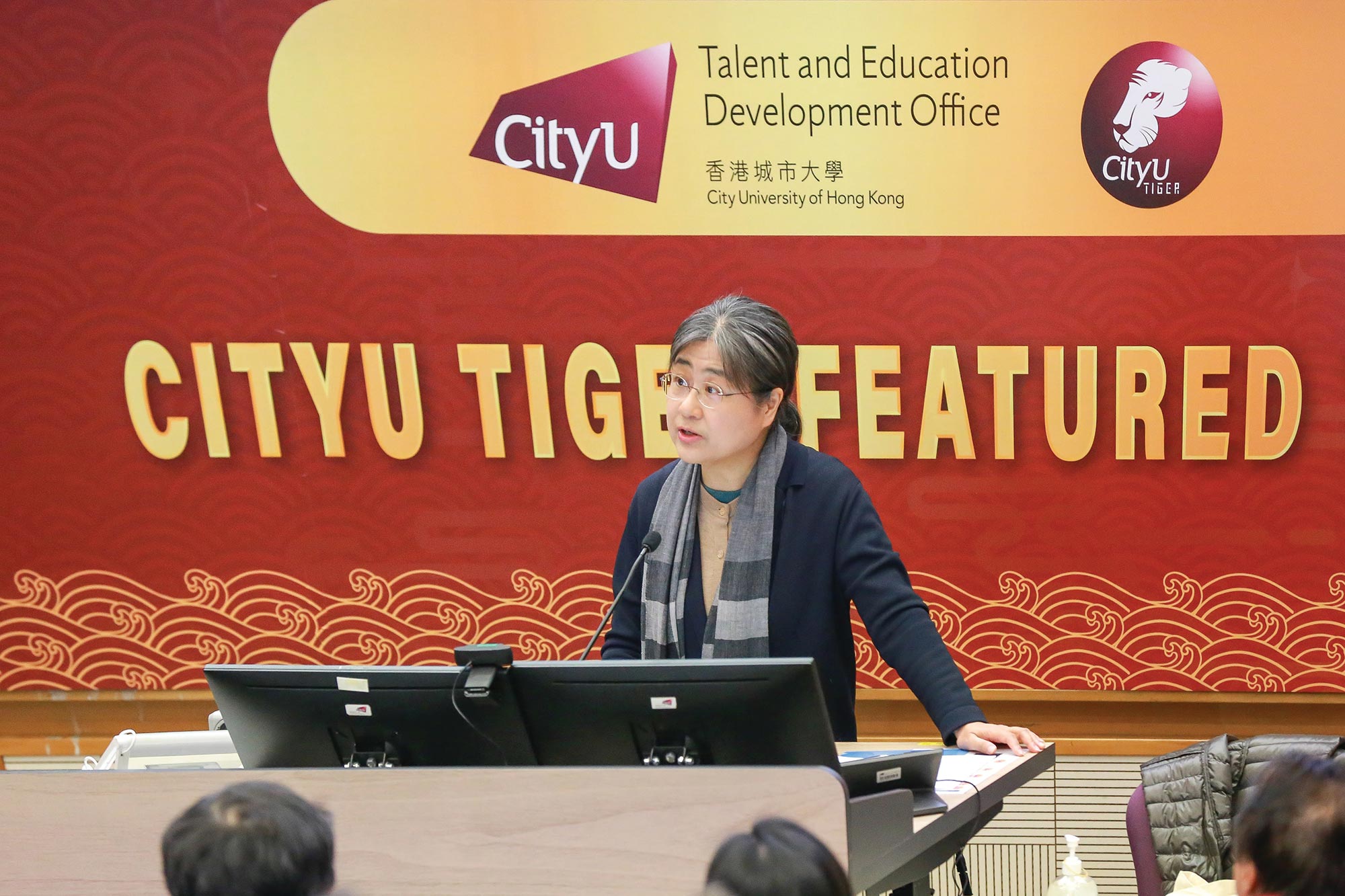Tracing the Origins of Turtle Soup Across Three Continents
Food is an essential part of every culture, and the food culture of different countries helps people understand life, society, history and even the world. On 28 February 2024, CityUHK’s Talent and Education Development Office (TED) invited Professor CHING May-bo, Associate Dean (Undergraduate Education and Quality Assurance) of College of Liberal Arts and Social Sciences, and Head of the Department of Chinese and History, to be the speaker for a CityU Tiger Featured Talk entitled “The Flow of Turtle Soup: How Historians Study Food to Understand the World”, leading the audience to explore culinary heritage and learn how historians study food to understand the world.
In his opening address, Professor Kenneth LO Kam-wing, Director of the TED Office, introduced the Featured Talk series as one of the events to enhance high-flying students’ personal and professional growth. He then briefly introduced the speaker, highlighting Ching’s academic success as an award-winning writer, and a distinguished scholar who studies the social and cultural history of modern China, especially how the regional culture of South China took shape in a trans-regional context in terms of sound, colour and tastes from the 16th to the 20th centuries.
The talk traced a transnational history of turtle soup through the flow of species, tastes, culinary techniques and food technology across three continents over more than three centuries. Ching described how the species, nested in the Caribbean, turned from a source of flesh for transatlantic seamen in the 17th century to a status marker for upper-class Europeans in the 18th century. The pleasure of eating turtle soup was underpinned by exotic references to “the West India Way” and national labels such as “the English fashion.” Around the same time, turtle soup in “the English fashion” was reproduced in Asia along with the trading activities and colonial endeavours of the British Empire. Into the second half of the 19th century, with the invention of canned food, the once upper-class dish became widely popular in the United States. The disastrous result was that the sea turtle hunt evolved from occasional seizure to outright massacre, which did not come to a halt until the 1970s, when large-scale harvesting was gradually restricted.
The fascinating talk received positive feedback from many CityUHK faculty, students and staff. In the Q&A session, the audience was curious about the research process of historians when identifying and assessing relevant sources for their research questions. At the end of the seminar, Ching shared a “recipe” for those aspiring to become historians—do a lot of reading, collect ingredients (primary source materials, research work), cook your own dishes (writing) and have fun studying history.




